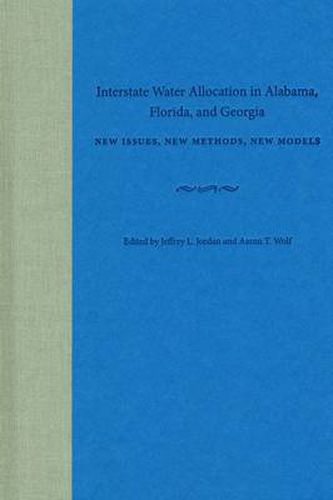Readings Newsletter
Become a Readings Member to make your shopping experience even easier.
Sign in or sign up for free!
You’re not far away from qualifying for FREE standard shipping within Australia
You’ve qualified for FREE standard shipping within Australia
The cart is loading…






This comprehensive case study of the
Tri-State Water Wars
from 1998 to 2003 - centering on the shared waters of Georgia, Florida, and Alabama - presents critical lessons learned about the process of making water allocation decisions across political boundaries. Though the three states failed to reach a settlement in their negotiations to allocate water from the two major south-east river basins - the Apalachicola, Chattahoochee, Flint (ACF) and the Alabama, Coosa, Tallapoosa (ACT) - their case illuminates such issues as water availability, conservation, and the need for alternative allocations that can be applied in contentious situations. Alternative strategies may include dividing sovereignty for maintaining standards of each tributary, allocating benefits rather than water, and
enlarging the pie , by including joint development and even nonwater parameters in negotiations. Drawing on successful models of water conflict discussions elsewhere in the country, the authors provide a new conceptual framework for natural resources management. The book’s 11 chapters, written by prominent authorities in water resources management, offer a thorough description of the tri-state geophysical setting, policy issues, and stakeholder interests in the ACF-ACT compact negotiations, as well as the long, rich legal history of interstate agreements and the role of the federal government in these agreements. This collection is the result of an 18-month project by the U.S. Geological Survey through the Alabama Water Resources Research Institute, which allowed for cooperative research among co-principal investigators from Florida, Georgia, and Alabama.
$9.00 standard shipping within Australia
FREE standard shipping within Australia for orders over $100.00
Express & International shipping calculated at checkout
This comprehensive case study of the
Tri-State Water Wars
from 1998 to 2003 - centering on the shared waters of Georgia, Florida, and Alabama - presents critical lessons learned about the process of making water allocation decisions across political boundaries. Though the three states failed to reach a settlement in their negotiations to allocate water from the two major south-east river basins - the Apalachicola, Chattahoochee, Flint (ACF) and the Alabama, Coosa, Tallapoosa (ACT) - their case illuminates such issues as water availability, conservation, and the need for alternative allocations that can be applied in contentious situations. Alternative strategies may include dividing sovereignty for maintaining standards of each tributary, allocating benefits rather than water, and
enlarging the pie , by including joint development and even nonwater parameters in negotiations. Drawing on successful models of water conflict discussions elsewhere in the country, the authors provide a new conceptual framework for natural resources management. The book’s 11 chapters, written by prominent authorities in water resources management, offer a thorough description of the tri-state geophysical setting, policy issues, and stakeholder interests in the ACF-ACT compact negotiations, as well as the long, rich legal history of interstate agreements and the role of the federal government in these agreements. This collection is the result of an 18-month project by the U.S. Geological Survey through the Alabama Water Resources Research Institute, which allowed for cooperative research among co-principal investigators from Florida, Georgia, and Alabama.